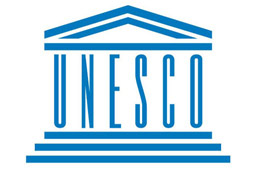What policies are needed to respond to the recession?

MichaelGaida (CC0), Pixabay
I attended an excellent webinar on Thursday from the UK Centre for Cities. The webinar, presented by Elena Begini and entitled ‘How will the recession affect different parts of the country?’, provided an analysis of the latest labour market data, both around the numbers unemployed and those furloughed and receiving government funding.
Elena explained that in the first month between March and April there was very rapid increase in the numbers employed and furloughed but of the main impact Covid 19 crisis was on those cities with weaker economies mostly in the north of England
Between April and May the increase in unemployment was slower. But in this month, it was the stronger city economies in the south of England that were hard hit. London and Basildon both joined the 20 hardest hit cities in terms of unemployment COVID 19 has spread out across most cities. Interestingly those cities hardest hit by unemployment are also those with the most furloughed workers. To a certain extent this depends on whether jobs in a city are able to be undertaken from home. In Wales Cardiff and Swansea have relatively lower rates of both unemployment and furloughed staff whilst in Newport the rates are higher, presumably reflecting a higher percentage of office worker in Cardiff and Swansea while a higher percentage of industrial enterprises in Newport.
These broad trends are also reflected in the percentage of self-employed workers who have applied for government assistance.
Type of employment is important. Crawley and Reading are both major and previously relatively economically strong cities close to London. But while Reading has (only!) 25 percent of jobs hit by the recession, Crawley has 38 per cent reflecting the importance of the aerospace industry (and particularly Gatwick airport) to the city.
It also should be noted that all cities have fast rising unemployment of young people although once more there is wide variation, for instance very high rates in northern cities and relatively low rates in Oxford and Cambridge.
One of the strengths of the Centre for Cities is that they not only analyze the data but put forward policy measures o respond to the research. Elena suggests the scale of the recession means there is an urgent need for active intervention. Austerity is not an option.
But because of the different trajectories in different cities the policy response needs to be differentiated.
For those cities which are relatively strong economically, there is the potential for a quick “bounce back”. This requires enhanced career support both for those seeking jobs for which they are already qualified or for employment in jobs with similar skill requirements. Secondly there is the need for grants for those seeking retraining or upskilling (and also courses are needed to support this). For places with weaker economies the priority is job creation with a particular focus on the green economy and on infrastructure development.
I have written this from my notes taken during the webinar so apologies for anything I have missed or for misreporting. A recording of the webinar is available for the Centre for Cities web site together with the data and their analysis.

 Last year I evaluated the ICT in education projects and programmes for UNESCO. In particular I looked at UNESCOs work in sub Saharan Africa. In a ‘Landscape Review’ of the use of ICT in education I wrote:
Last year I evaluated the ICT in education projects and programmes for UNESCO. In particular I looked at UNESCOs work in sub Saharan Africa. In a ‘Landscape Review’ of the use of ICT in education I wrote: